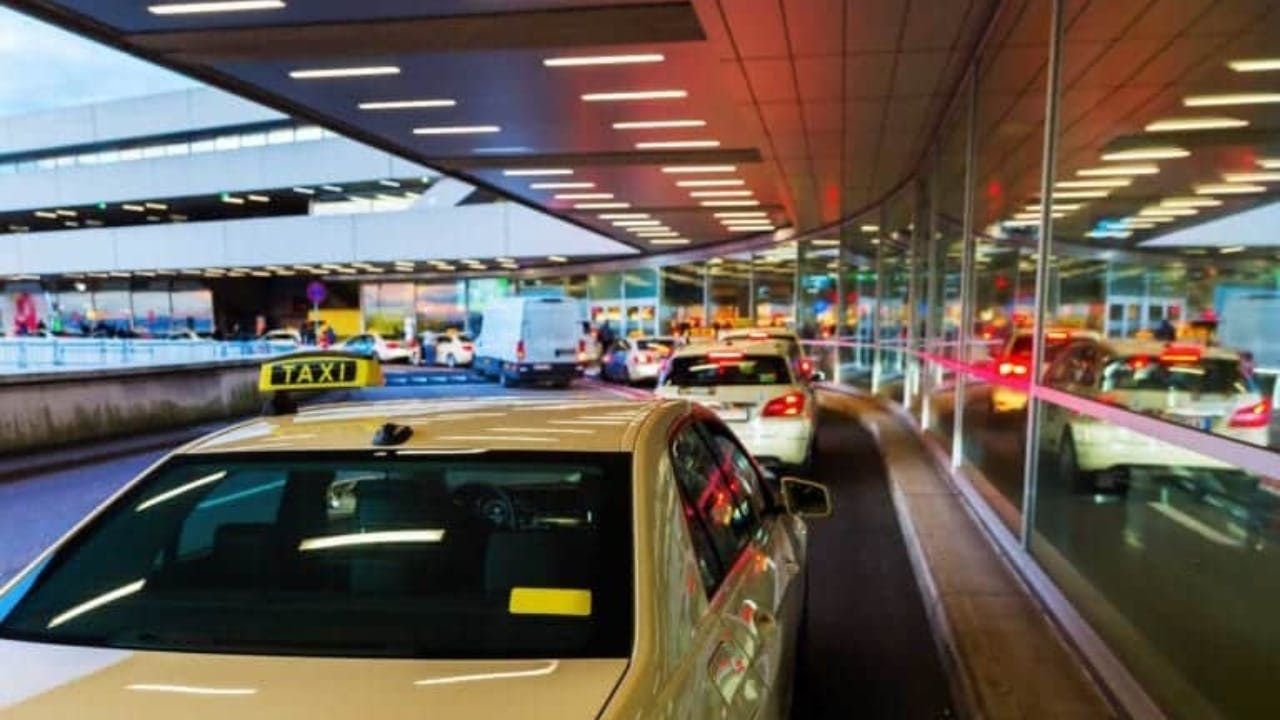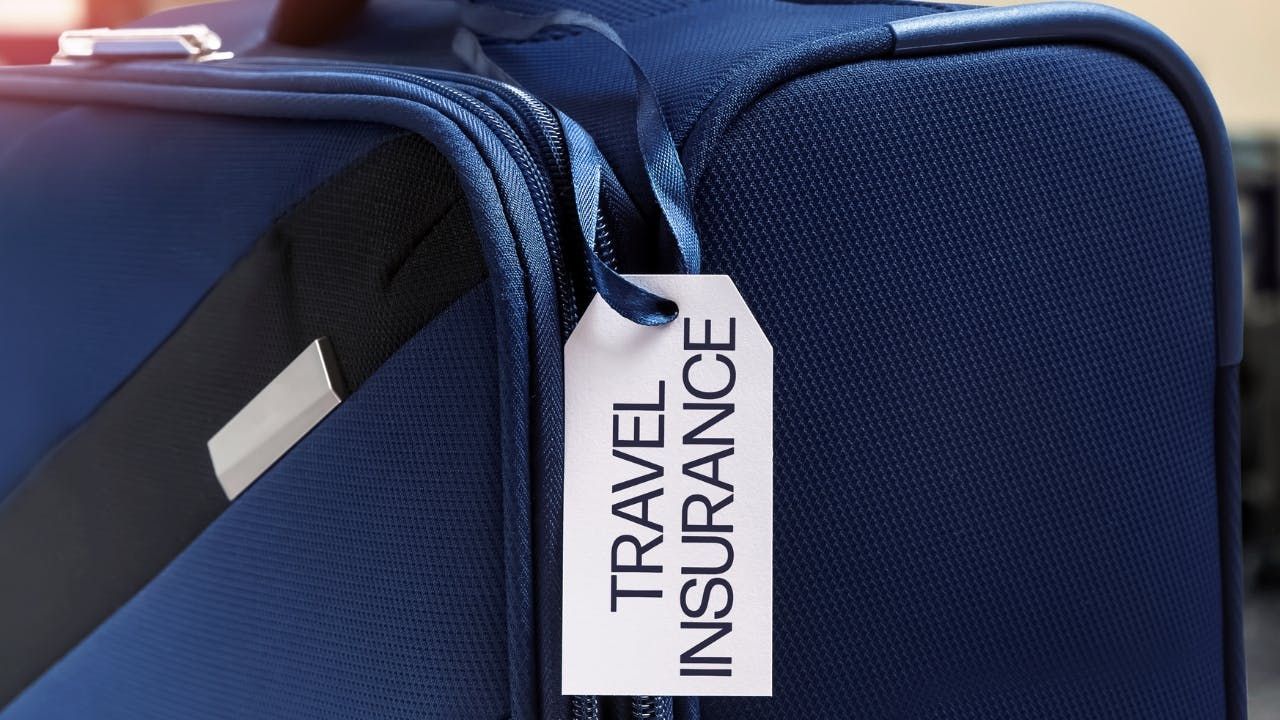
How to Avoid Hidden Holiday Costs in 2025
Planning a holiday is exciting, but nothing dampens the mood quite like unexpected extra costs.

Nearly a third of Brits have been caught off guard by surprise holiday fees – and it’s not hard to see why. Airline seats, checked luggage and airport parking can all add up quickly, turning what looked like a budget break into something much pricier than expected. And that’s before you factor in things like transfer charges, tourist taxes or insurance add-ons.
The good news is, most of these hidden charges can be avoided with a bit of planning – and we’re going to help you spot them, avoid them, and save money along the way!
Hidden Airline Extras
We’ve all seen those tempting flight deals for £9,99, only to end up paying much more after adding baggage and choosing a decent seat. Budget airlines in particular are known for making their money through ‘optional extras’, so it’s worth knowing what to look out for.
Baggage Fees
One of the easiest ways to rack up extra charges is with your luggage. Most budget airlines don’t include checked bags in the ticket price, with more and more airlines now doing the same on their cheaper fares.
Here’s what to expect in 2025:
- easyJet includes a small under-seat bag as standard. If you’d like to bring a larger suitcase (23kg), prices start from around £9.50 each way when booked online.
- Jet2 allows one cabin bag (up to 10kg) for free. A 22kg checked bag costs around £21 each way when pre-booked, or £45 if you add it at the airport.
- Ryanair includes one small under-seat bag with their lowest fares. To bring a larger cabin bag or check in a 20kg suitcase, expect to pay between £12 and £60, depending on your route and travel date.
- British Airways includes a generous hand luggage allowance on most fares, but their ‘Economy Basic’ tickets are hand baggage only. To add a checked bag, you’ll usually pay £35-£80 online, depending on the destination.
Baggage fees are usually cheaper when booked in advance or as part of a package deal. Checking what’s included before you book can help you avoid any nasty surprises. Typically, the lower the cost of the initial fare, the higher these extras cost.

Seat Selection Fees
Choosing your seat in advance is a nice extra, especially if you’re travelling as a couple or as part of a group. But while some seats can be selected for free during online check-in, others come at an added cost depending on the airline and ticket type.
Seat Selection Fees in 2025:
- easyJet offers standard seat selection from around 99p, with extra legroom and exit row seats starting from £7.99.
- Ryanair charges between £4 and £15 for a standard seat and up to £33 for extra-legroom options.
- Jet2 and TUI offer allocated seating from around £10 to £30, particularly for extra legroom or front-row seats.
- British Airways includes free seat selection at online check-in (24 hours before departure) for most standard Economy fares. However, if you’ve booked a ‘Basic’ ticket or want to choose your seat in advance, costs range from £20 to £40 on short-haul flights.
If you’re travelling with family or in a group, most airlines will do their best to seat you together if you’ve booked under one reservation – even if you don’t pre-select seats. However, we always recommend checking the airline’s seat policy before booking, as this can help avoid any last-minute reshuffling at the gate!
Check-in and Admin Charges
If you want to avoid any extra costs once you arrive at the airport, these small admin tasks could save you a small fortune:
- Ryanair charges £55 if you arrive at the airport without a printed or digital boarding pass. If you’re flying from Spain, the fee is €30.
- Name changes can also be costly. While correcting a small spelling mistake is usually free, changing the full name on a booking can be expensive. With Ryanair, for example, the fee ranges from £115 to £160, which can sometimes be more than the cost of the flight itself!
Onboard Food & Extras
Food and extras onboard can vary depending on who you fly with and where you’re heading. While some longer flights include meals, shorter routes – even with full-service airlines – often don’t.
Here’s what to expect in 2025:
- British Airways includes meals and drinks on long-haul flights. However, on most short-haul routes, snacks and drinks are no longer complimentary and must be purchased onboard.
- Low-cost airlines like Ryanair, easyJet and Jet2 charge for all food and drink. This includes tea, coffee, snacks and sandwiches.
- Other onboard extras like Wi-Fi, entertainment system and headphones are also usually paid add-ons, depending on the airline and route.
While these aren’t necessarily hidden costs, they can catch you out if you haven’t planned for them! Bringing your snacks (where allowed) and downloading entertainment in advance can help you save a bit on board.
How to Avoid Airline Extras
Airline add-ons can creep up and turn that budget break into an expensive one, but with a bit of planning, you can keep costs low.

1. Pack Light
Most airlines include a small under-seat bag for free – for example, easyJet allows 45×36×20cm, and Ryanair allows 40×20×25cm.
2. Book Extra Luggage Online
It’s nearly always cheaper to pre-book luggage in advance. Jet2’s checked baggage, for instance, can be up to 50% cheaper if you pre-book online rather than at the airport.
3. Share Suitcases
Travelling as a family? Consider sharing suitcases to cut down on the number of bags you need to check in.
4. Skip Seat Selection
Not fussed about where you sit? Skipping seat selection on shorter flights could save you £20-£30 per person, especially if you’re happy to be randomly assigned.
5. Check in Online
Checking in online or via your airline’s app is quick, easy and will help you avoid any airport check-in fees. Set yourself a reminder the day before you fly so you don’t forget!
6. Check Names
Double-check names on your booking! Spelling mistakes can cost a lot to fix later, especially with airlines like Ryanair.
Before you book any flights or package holidays, take a minute to check for discount codes. Airlines often run promotions, and a code could save you money or include extras like baggage or seat upgrades!
The NetVoucherCodes Travel Deals section is regularly updated with offers from top brands like TUI, Jet2holidays, easyJet Holidays and more. You’ll also find deals on travel insurance, airport parking, and hotels – perfect for cutting down those hidden costs.
And if you want to see how much these fees can add up, take a look at our Airline Hidden Fees Report to see real examples of what extras are costing travellers.
Accommodation Costs to Keep in Mind
Even once you’ve booked your hotel or holiday rental, a few extra charges can creep in.
Here are the main ones to be aware of in 2025:
Resort Fees and All-Inclusive Extras
While resort fees are more common in the US, some European hotels now add them too. These are daily charges added on top of your room rate for using things like:
- The pool or spa
- Wi-Fi
- Gym access
- Pool towels or beach loungers
With all-inclusive deals, some extras – like premium drinks, à la carte restaurants, or room service might not be part of the package. Airport transfers aren’t always included either, so it’s worth checking before you book!
Tourist and City Taxes
Many popular destinations in Europe now charge a tourist or city tax. This is usually a small daily fee (around €1-€3 per person) and is often paid at the end of your stay. It can vary depending on the location and often the type and star rating of your accommodation.

These taxes often aren’t included in your booking confirmation, so it’s easy to overlook them!
Children under 12 are often exempt from city taxes. While the charge can’t usually be avoided, it’s worth knowing that even UK destinations like Manchester and parts of Dorset have introduced their versions, so it’s not just a European thing.
Apartment and Villa Fees
If you’re booking a villa or Airbnb, always check the small print! On top of the nightly rate, you might also be charged for:
- Cleaning
- Early check-in or late check-out
- Breakages or security deposits
- Extra guests, pets or towel changes
- Electricity or air conditioning (especially for heated pools)
Sites like Airbnb also add a service fee (usually 14-16%), which can come as a surprise if you haven’t spotted it in the small print.
We recommend adding up the full cost before you book – £60 per night can quickly become £85 with fees. Booking.com and similar sites often show the total price more clearly and can be a better option for comparing costs.
Airport Parking, Transfers & Car Hire

Travelling to and from the airport is a part of your holiday that can quickly add up. Many UK travellers opt to drive to the airport for convenience; however, in recent years, airports have introduced pricey fees that only get more expensive if you turn up without booking.
Here are some things you should consider to save yourself money on your journey to the airport:
Terminal drop-off charges
If you’ve arranged a lift to the airport, be aware that nearly every major UK airport now charges a fee just to drop passengers at the terminal.
- London Gatwick has raised its drop-off fee to £7 for 10 minutes in 2025 (up from £5 a couple of years ago)
- Heathrow charges £6 per visit to use the drop-off zone
- Manchester Airport charges £5 for 5 minutes or £6.20 for 10 minutes in the express drop-off area
If you stay any longer, these fees can increase quickly – for example, Gatwick Airport charges up to £25 for longer stays.
To avoid these costs, you can always make use of the free drop-off zones at most UK airports. Although these zones are often located slightly further away, they allow you to park for 10-30 minutes while dropping off passengers. There are often free shuttle buses located in these car parks too, so you don’t have to walk far to the terminal.
Short stay vs long stay parking
If you’re planning on driving yourself to the airport and parking there while you’re away, it’s important you book in advance. Most airport parking websites admit that booking ahead saves you up to 50% or more on parking fees, with pricier fees guaranteed if you pay on the day.
We’d also recommend comparing the airport’s short stay and long stay parking options, as some airports offer much cheaper prices on selected types of parking, especially when they’re booked early. For instance:
- Edinburgh Airport charges £170 for a week in the standard car park if you pay on the day. However, if you book the cheapest long-stay parking in advance, you’ll be paying as little as £23.99 for the week.
- Manchester Airport charges around £60 for eight days in a pre-booked long-stay car park. This is around the same price for just one day if you turn up without booking.
Off-site and independent parking
Off-site parking providers and independent parking operators are often ignored in favour of official airport parking, but they’re usually significantly cheaper while still being efficient and safe. Of course, it’s important that you check reviews to vet any company you leave your vehicle with, but websites like Holiday Extras and Purple Parking make this much easier.
Another cost-effective option is a hotel & parking package. Sometimes airport hotels offer deals that include a week of parking, so if you’re planning on staying near the airport before your flight, this is definitely an ideal option. Independent parking operators tend to run shuttle buses from nearby hotels and car parks too.
Other transport options

Before choosing to drive to the airport, we also suggest considering alternatives like public transport or affordable taxi services like Uber.
Uber
Uber still isn’t available everywhere, including Albania, Switzerland and parts of France and Italy. However, some countries do offer alternatives like Bolt, Grab and Lyft, which are similarly priced. It’s also worth ringing local taxi services too to get a quote – these often prove most cost-effective for larger groups that can share costs between them.
Public Transport
Most UK airports are well-connected by train or coach, and these methods of transport tend to be easy and cheap, especially if you have a railcard. Trains are often more cost-effective for couples and solo travellers, costing around £15 per ticket. However, it may be more value for money and less hassle for families to drive and park at the airport.
Airport Transfers
Airport transfers via coach or minibus can also be affordable, especially if you’re travelling in a large group. Some package holidays also include free transfers to and from the airport, both at home and at your destination, so keep an eye out for these to save money.
If you’re looking to book a transfer yourself, it could cost you anywhere from £35 to £80 one way, depending on distance, time of day and how you book. You may pay more if:
- It’s charged per person
- You’re carrying extra luggage
- You’re travelling at peak times
- You choose a larger or luxury vehicle
- You book directly through your travel provider in pounds
How to Save on Airport Parking & Transport
As well as booking as early as possible, there are some other things you can do to avoid spending a fortune on airport parking and transfers. Here are some of our best tips to help you save:
1. Use comparison sites
Parking comparison sites are great for finding the best deal on your airport parking. Compare the airport’s official prices with those of independent companies and find the cheapest rate.
2 .Use a voucher code
When you book online in advance or use a parking comparison site, you can usually add a voucher code to your booking for some extra savings. You’ll find the latest airport parking codes and offers under our travel section here at NetVoucherCodes.
3. Be quick
If you drop someone off at the terminal, make sure you keep it brief. You can avoid costs with a well-planned 2-minute drop-off with no lingering. If you do have to pay, make sure you have your payment method ready since you’ll most likely have to pay online within 24 hours of parking.
4. Get organised
If you’re being picked up, remember that pick-up zones can be just as pricey as drop-off points. Using the short-term car park for even 20 minutes can cost £10 or more, so make sure you arrange to meet your lift at a nearby free parking area once you’ve collected your bags.
5. Check local transport options
To save money on airport transfers and local transport once you reach your destination, compare transfer providers like Welcome Pickups or check with your hotel. Hotels often recommend local companies that are cheaper than what’s listed online. They’ll also let you know if public transport or taxis work out better value, and can help you organise these.
6. Look into local tourist travel cards
These cards often offer unlimited public transport for a set number of days. Cities like Paris, Rome and Florence offer great value on these, especially for families.
7. Be picky with your location
Before booking your hotel, you should always check how close it is to shops, restaurants, attractions and the airport you’re flying into. Use Google Maps to scope out the area in advance or have a look at the location on Booking.com. If most things are within walking distance, you’ll save money on transport.
Car Hire Extras
If local taxi prices are proving pricey in your holiday destination or public transport is lacking, you may be considering hiring a car for the duration of your holiday. Car hire can seem affordable at first glance, but added costs can increase the price quickly. Watch out for:
- Extra charges for additional drivers
- Young driver fees
- High cleaning fees
- Expensive insurance add-ons
- Mileage caps or strict fuel policies
In Europe, you’ll often be asked to pay for excess car insurance unless you take out extra cover. Without it, you could be liable for repairs up to £2,500 if anything goes wrong, even if it’s not your fault.
We recommend buying Excess Reimbursement Insurance (ERI) before you travel, which is much cheaper than the cover sold at car rental desks. According to Which?, an ERI bought online can cost as little as £16 for 14 days, compared to up to £183 per week at the counter.
What to Know Before You Buy Travel Insurance

Travel Insurance isn’t the most exciting part about holiday planning, but it is essential for avoiding potentially catastrophic hidden costs!
Medical bills and lost luggage expenses can turn a dream holiday into a financial nightmare if you’re not insured. But knowing which policy to choose and where to buy from can be tricky.
Insurance Cost vs Coverage
Travel insurance is often fairly inexpensive. It usually works out at around 4-6% of your total holiday cost. But with that being said, cheaper doesn’t always mean better. Low-cost policies often come with high excess fees, lower payout limits, or limited coverage.
Before you buy, it’s worth checking:
- Will it cover the full cost if you need to cancel your trip?
- Are any activities or excursions you’ve booked included (like jet-skiing or hiking)?
- Do you need extra cover for gadgets like your phone, camera or laptop?
Excess Charges
When you take out travel insurance, the ‘excess’ is the amount you’ll have to pay yourself if you make a claim – and it’s something many people overlook.
For example, if your £150 camera is stolen and your policy has a £100 excess, you’d only get £50 back. Some cheaper policies apply this excess per claim, or even per person, which means you could end up paying quite a bit!
One well-known UK insurer charges a £129 excess per claim on its basic policy, and there’s no option to remove it.
Other insurers let you pay a little more when you buy the policy to reduce your excess to £0. This is often called an ‘excess waiver’. It might cost a few extra pounds upfront, but it could save you hundreds if something goes wrong.
Medical Cover
Medical bills abroad can be extortionate, which means having the right level of cover is essential.
- In the USA, treatment for something as simple as food poisoning or an infection could cost over £150,000.
- A broken leg in Spain could lead to a hospital bill of more than £25,000.
- If you need to be flown home by air ambulance from the US, it could cost upwards of £190,000.
It’s not nice to think about, but these things do happen, and without insurance, you’d be expected to cover the full cost yourself! That’s why it’s so important to choose a policy that offers:
- High medical cover limits – ideally in the millions
- Emergency repatriation – so you can be brought back to the UK if needed
- Don’t rely on the GHIC (Global Health Insurance Card) alone. It only covers basic state healthcare in certain countries and won’t help with things like private treatment, mountain rescue or getting you home in an emergency.
Even basic travel insurance usually includes medical cover, but always check the limit, and make sure it includes repatriation. It’s one of the most important things your policy should protect you against!
Cancellations, Delays and Lost Belongings

Travelling doesn’t always go as smoothly as we wish – accidents happen and we can often run into trouble when we least expect it. That’s why having the right level of cover to protect you from all eventualities is essential. Plus, it can really give you peace of mind and allow you to travel confidently, knowing that whatever happens, you’re covered!
Here’s what to look out for when booking your Travel Insurance:
Trip cancellation or curtailment
Your policy should cover the full cost of your prepaid flights, hotels and other bookings if you have to cancel or cut your trip short due to illness, injury or other valid reasons.
Lost or stolen baggage
Most policies include baggage cover, but there’s often a limit per item and an overall payout. If you’re taking expensive items like a laptop, phone or jewellery, check whether you need to list them separately or if they’re covered under your home insurance.
Delays and missed departures
With flight cancellations and delays still common due to strikes and weather, it’s a good idea to have a policy that offers fixed compensation for delays or covers the cost of a new flight if you miss yours for reasons beyond your control.
How to Save on Travel Insurance
You don’t have to spend a fortune to get a good level of cover, but it’s important to know how you can cut the costs where needed:
1. Compare quotes online
Use comparison sites to check prices, but don’t just pick the cheapest. Look at customer reviews, especially how well the insurer handles claims.
2 . Annual Policy
Travelling more than once this year? An annual multi-trip policy can often be cheaper than buying separate cover for each holiday, especially if you’re going away twice or more.
3. Cover under One Plan
Couples and family cover is usually better value than individual policies, so it’s worth checking if you can all be covered under one plan.
4. Bank Offers
Check what your bank offers. Some packaged bank accounts or premium credit cards include travel insurance. Just make sure the policy covers everything you need – and don’t forget to declare any medical conditions.
5. Look out for discount codes
Many insurers and comparison sites offer promo codes or seasonal deals. Before you buy, check the NetVoucherCodes travel insurance section – you might find a deal that saves you money or helps you upgrade your cover for less.
Even if the savings are small, a better policy with more cover or lower excess can be worth it, especially if something goes wrong while you’re away.
Need more help planning a stress-free trip? Check out our blog on how to plan a budget-friendly 2025 holiday for extra saving tips, or stay one step ahead of scammers with our guide to the latest travel scams and how to avoid them.
And don’t forget – our Travel Deals section is packed with money-saving offers on holidays, flights, insurance, parking and more. A quick check before you book could help you cut the cost of your next trip!